
-
Find the right food for your petTake this quiz to see which food may be the best for your furry friend.Find the right food for your petTake this quiz to see which food may be the best for your furry friend.Health CategoryFeatured products
 Adult 6+ Large Breed Chicken Meal, Barley & Rice Recipe Dog Food
Adult 6+ Large Breed Chicken Meal, Barley & Rice Recipe Dog FoodSupports energy level, joint health, and beautiful coat in large breed mature dogs
Shop Now Healthy Mobility Large Breed Chicken Meal, Barley & Brown Rice Recipe Dog Food
Healthy Mobility Large Breed Chicken Meal, Barley & Brown Rice Recipe Dog FoodAdvanced nutrition shown to support joint health and improve mobility
Shop Now Adult Perfect Weight & Joint Support Chicken & Brown Rice Recipe Dog Food
Adult Perfect Weight & Joint Support Chicken & Brown Rice Recipe Dog FoodThis weight management and mobility support dog food was created with Hill’s unique understanding of the biology of overweight dogs.
Shop NowFeatured products Adult Perfect Weight Salmon & Vegetable
Adult Perfect Weight Salmon & VegetableOver 70% of cats lost weight within 10 weeks when fed this nutrition
Shop Now Adult Indoor Savory Chicken Entrée Cat Food
Adult Indoor Savory Chicken Entrée Cat FoodPrecisely balanced nutrition for indoor cats with the delicious taste of savory minced chicken
Shop Now Kitten with Salmon
Kitten with SalmonPrecisely balanced nutrition with the delicious taste of minced salmon to help build immunity and a healthy digestive system
Shop Now -
DogCat
- Cat Tips & Articles
-
Health Category
- Weight
- Skin & Food Sensitivities
- Urinary
- Digestive
- Kidney
- Dental
- Serious Illness
-
Life Stage
- Kitten Nutrition
- Adult Nutrition
Featured articles The Right Diet For Your Pet
The Right Diet For Your PetLearn what to look for in healthy pet food & nutrition, including ingredients, quality of the manufacturer, your pet's age, and any special needs they have.
Read More Pet Food Storage Tips
Pet Food Storage TipsWhere you store your cat and dog food can make a big difference in the quality and freshness once it is opened. Here are some common questions and recommendations for optimal storage for all of Hill’s dry and canned cat and dog food.
Read More Water
WaterWater is the most important nutrient of all and essential for life. Animals can lose almost all their fat and half their protein and still survive, but if they lose 15% of their water, it will mean death.
Read More -


When your cat gracefully jumps onto your lap while you're eating and gives you that curious stare, it's tempting to share a morsel from your plate. But before you offer your feline friend a taste, it's essential to understand which human foods are safe for cats and which could put their health at risk.
Cats have unique digestive systems and nutritional requirements that differ significantly from both humans and dogs. As obligate carnivores, cats have evolved to derive their nutrition primarily from meat, making their dietary needs even more specific than their canine counterparts. Understanding what human foods your cat can safely enjoy helps prevent health complications whilst allowing you to occasionally treat your pet without concern.
This comprehensive guide will help you determine which human foods are appropriate for your feline companion, those that should be limited, and those that must never pass their whiskers.
Understanding Your Cat's Nutritional Needs
Cats are obligate carnivores, meaning they require nutrients found exclusively in animal tissue to survive and thrive. Their bodies are specifically designed to process high-protein, low-carbohydrate diets, and they have limited ability to digest plant matter effectively.
Unlike dogs, cats cannot produce certain essential nutrients themselves and must obtain them from their diet. These include:
Taurine: An amino acid crucial for heart function, vision, and reproduction
Arginine: Essential for protein metabolism and ammonia detoxification
Arachidonic acid: A fatty acid necessary for skin health and kidney function
Vitamin A: Must be consumed pre-formed from animal tissue
Niacin (Vitamin B3): Cannot be synthesised from tryptophan like other animals
Commercial cat foods like Hill's Science Diet are specifically formulated to meet these unique nutritional requirements. Human foods should only supplement a complete and balanced commercial diet, making up no more than 10% of your cat's daily caloric intake.
A balanced diet for cats typically includes:
High-quality animal protein as the primary ingredient
Moderate amounts of fat for energy and essential fatty acids
Proper balance of vitamins and minerals
Adequate moisture content (cats naturally have a low thirst drive)
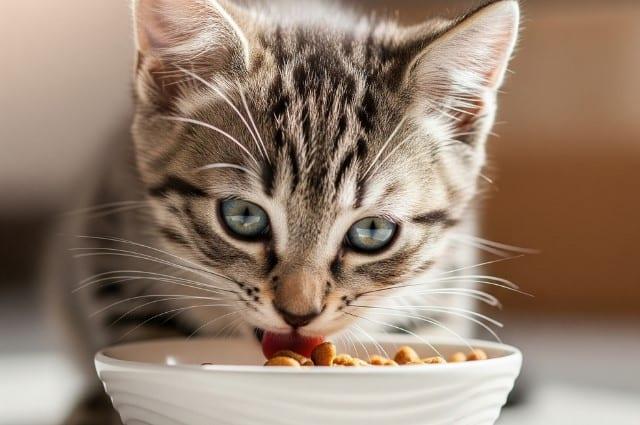
Understanding Your Cat's Natural Feeding Patterns
ffdIn the wild, cats hunt and consume numerous small prey throughout the day and night, typically eating 10-20 small meals. This natural feeding pattern differs significantly from the twice-daily feeding schedule many pet owners follow. Understanding this instinct can help you better incorporate human food treats into your cat's routine.
Cats' stomachs are approximately the size of a ping-pong ball, designed for frequent, small meals rather than large portions. This physiology means that:
Multiple small meals throughout the day align with their natural behaviour
Large meals can cause discomfort or vomiting
Treats should be offered in tiny portions, distributed throughout the day
Feeding schedules should accommodate their crepuscular nature (most active at dawn and dusk)
When offering human food treats, consider spreading them across several small offerings rather than one large portion. This approach not only mimics natural feeding patterns but also helps prevent overeating and maintains steady energy levels throughout the day.
Safe Human Foods for Cats - Proteins
As obligate carnivores, cats can safely enjoy many human protein sources when prepared appropriately:
Chicken: Plain, cooked, boneless chicken is an excellent protein source. Remove all skin and seasonings, and never feed cooked bones.
Turkey: Like chicken, plain cooked turkey provides lean protein. Ensure it's free from seasonings, especially garlic and onion powder.
Fish: Cooked salmon, tuna, and whitefish can be offered occasionally. However, fish shouldn't be a primary protein source as it can lead to thiamine deficiency. Always cook thoroughly and remove all bones.
Beef: Lean, cooked beef can be a good protein source. Avoid fatty cuts and remove all visible fat.
Eggs: Fully cooked eggs provide complete protein and can be beneficial for coat health. Never serve raw eggs due to salmonella risk and avidin, which interferes with biotin absorption.
Liver: Small amounts of cooked liver can be nutritious, but excessive amounts can cause vitamin A toxicity.
When preparing these proteins for your cat, always cook thoroughly without oils, butter, salt, or spices. Cut into small, manageable pieces to prevent choking.
Safe Human Foods for Cats - Fruits
Whilst cats don't require fruit in their diet, some can be offered as occasional treats in very small amounts:
Blueberries: Contain antioxidants and can be served fresh or frozen as tiny treats.
Strawberries: Remove the leaves and stem, then offer small pieces occasionally.
Cantaloupe: Some cats are attracted to cantaloupe's scent. Offer seedless, rindless pieces in moderation.
Apples: Peeled and cored apple pieces can be given occasionally. Never feed seeds, which contain cyanide.
Bananas: Small amounts can be offered, though many cats dislike the texture.
Watermelon: Seedless, rindless pieces can be a hydrating summer treat.
Remember that cats cannot taste sweetness and may show little interest in fruits. Never force fruit consumption, as it's not necessary for their health.
Safe Human Foods for Cats - Vegetables
Cats have limited ability to digest plant matter, but some vegetables can be offered in small amounts:
Pumpkin: Plain and cooked pumpkin can aid digestion and help with hairballs. It's particularly beneficial for cats with constipation or diarrhoea.
Green Beans: Steamed or boiled green beans can be a low-calorie treat for overweight cats.
Carrots: Cooked carrots, cut into tiny pieces, can be offered occasionally.
Broccoli: Small amounts of steamed broccoli florets are safe but may cause gas in some cats.
Peas: Many cats enjoy frozen peas as a crunchy treat. They're often included in commercial cat foods.
Cucumber: Small pieces can be refreshing, especially in warm weather.
Sweet Potato: Cooked and mashed sweet potato can be offered in tiny amounts.
Always cook vegetables thoroughly to aid digestion, and introduce them gradually to monitor for any adverse reactions.


Tasty Tips
Safe Human Foods for Cats - Grains and Other Foods
Whilst cats don't require grains, some can be safe in minimal quantities:
Rice: Plain, cooked white rice is safe for cats to eat. Those with any digestive upset should try a highly digestible nutrition with prebiotic fibre such as Hill's Prescription Diet i/d Dry Cat Food, which is clinically shown to help settle associated issues.
Oatmeal: Plain, cooked oatmeal can provide some fibre. Avoid instant varieties with added sugar or flavourings.
Plain Yogurt: Small amounts of plain, unsweetened yogurt with live cultures may benefit digestive health. Avoid varieties with artificial sweeteners.
Bread: Small pieces of plain bread can be given occasionally but provide no nutritional value.
These items should be considered rare treats rather than regular additions to your cat's complete and balanced diet, as they can contribute to obesity and don't align with cats' carnivorous nature.
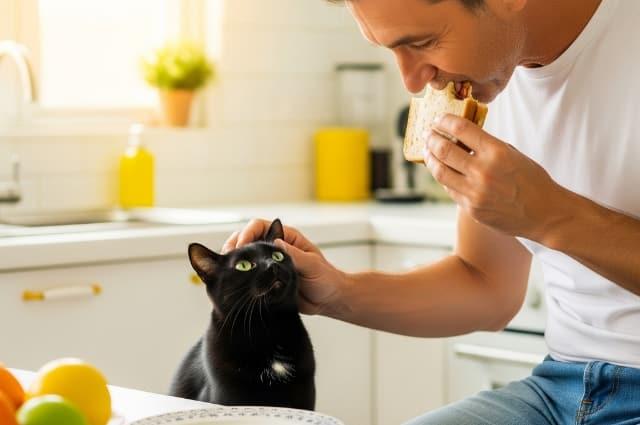
Human Foods to Avoid
Many human foods are toxic or harmful to cats. Never feed your cat:
Onions and Garlic: All forms (raw, cooked, powdered) can damage red blood cells, causing anaemia. Even small amounts in seasoned foods are dangerous.
Grapes and Raisins: Can cause kidney failure in cats, though the toxic mechanism isn't fully understood.
Chocolate: Contains theobromine and caffeine, which cats cannot metabolise. Dark chocolate is especially dangerous.
Alcohol: Even tiny amounts can cause severe liver and brain damage, potentially leading to death.
Caffeine: Found in coffee, tea, and energy drinks, caffeine can cause rapid heart rate, tremors, and seizures.
Xylitol: This artificial sweetener causes insulin release, leading to hypoglycaemia and potential liver failure.
Raw Dough: Can expand in the stomach, causing bloat and alcohol poisoning from fermenting yeast.
Macadamia Nuts: Can cause lethargy, vomiting, hyperthermia, and tremors.
Milk and Dairy: Most adult cats are lactose intolerant and experience digestive upset from milk products.
Raw Fish: Regular consumption can lead to thiamine deficiency, causing neurological problems.
Dog Food: Lacks essential nutrients cats require, particularly taurine and arachidonic acid.
If your cat consumes any toxic foods, contact your veterinarian immediately. Time is critical in treating food poisoning.
Feeding Human Foods as Treats
When offering human foods to your cat, follow these guidelines:
The 10% Rule: Human food treats should comprise no more than 10% of your cat's daily caloric intake to maintain nutritional balance.
Tiny Portions: Cats are much smaller than dogs, requiring proportionally smaller treat sizes. What seems like a small amount to you may be substantial for a cat.
Gradual Introduction: Introduce new foods one at a time in minimal amounts to monitor for allergic reactions or digestive upset.
Room Temperature: Cats prefer food at room temperature or slightly warm, mimicking freshly caught prey.
Proper Presentation: Cut foods into small, manageable pieces. Cats often prefer to eat from flat surfaces rather than bowls.
Timing Matters: Offer treats between meals to avoid disrupting regular feeding schedules.
Consider using puzzle feeders or hiding small amounts of safe human foods around the house to provide mental stimulation and mimic natural hunting behaviours.
Food Allergies and Sensitivities in Cats
Cats can develop allergies or intolerances to certain foods. Common signs include:
Persistent scratching, particularly around the head and neck
Over-grooming leading to hair loss
Vomiting or diarrhoea
Skin lesions or rashes
Chronic ear infections
Respiratory symptoms like coughing or wheezing
True food allergies in cats are rare, and allergies to grains are rarer still. If you suspect a food allergy, consult your veterinarian, who may recommend an elimination diet or specialised food like Hill's Prescription Diet z/d, formulated to help avoid adverse food reactions.
When introducing new human foods, observe your cat carefully for 24-48 hours for any negative reactions.
Frequently Asked Questions
Can cats eat dog food? No, cats should never eat dog food regularly. Dog food lacks essential nutrients cats require, including adequate taurine, arachidonic acid, and vitamin A. Occasional consumption won't cause immediate harm, but regular feeding can lead to severe nutritional deficiencies.
Why does my cat eat grass? Grass eating is normal behaviour that may aid digestion, provide fibre, or help with hairball elimination. Ensure any grass your cat has access to is pesticide-free. Consider growing cat grass indoors as a safe alternative.
Can cats be vegetarian or vegan? No, cats cannot thrive on vegetarian or vegan diets. As obligate carnivores, they require nutrients found only in animal tissue. Attempting to feed a cat a plant-based diet can result in severe health problems and is considered unsuitable by veterinary professionals.
How much water should cats drink? Cats naturally have a low thirst drive, having evolved from desert ancestors. They should consume approximately 50-60ml of water per kilogram of body weight daily. Wet food contributes significantly to hydration. Consider a water fountain to encourage drinking.
Is it safe to give cats fish regularly? Whilst cats enjoy fish, it shouldn't be their primary protein source. Regular fish consumption can lead to thiamine deficiency, and some fish contain high mercury levels. Offer fish as an occasional treat rather than a dietary staple.
What should I do if I'm unsure about a particular food? When uncertain, avoid feeding the food to your cat and consult your veterinarian. Cats' unique nutritional requirements make them more sensitive to dietary changes than many other pets
Understanding which human foods are safe for cats helps you make informed decisions about occasional treats. Remember that cats have evolved as strict carnivores with specific nutritional needs best met by high-quality commercial cat foods like Hill's Science Diet. Human foods should only supplement a complete and balanced diet, and any concerns about your cat's nutrition or health should be discussed with your veterinarian. By treating your cat thoughtfully with appropriate human foods, you can safely share special moments whilst maintaining their optimal health and wellbeing.
Related products

Over 70% of cats lost weight within 10 weeks when fed this nutrition

Precisely balanced nutrition with the delicious taste of minced salmon to help build immunity and a healthy digestive system

Over 70% of cats lost weight within 10 weeks when fed this nutrition

Precisely balanced nutrition for indoor cats with the delicious taste of savory minced chicken
Related articles
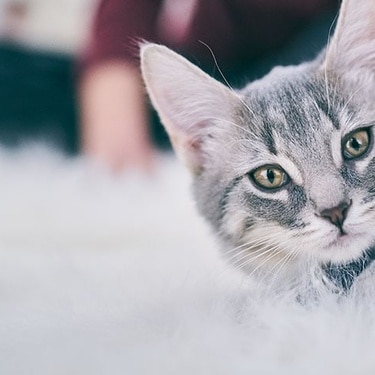
HillsPet Nutrition provides information on proper nutrition, fitness and special needs in keeping your cat healthy and happy.

Get helpful information on proper feline oral healthcare and why it's so vital to take care of your cat's teeth.
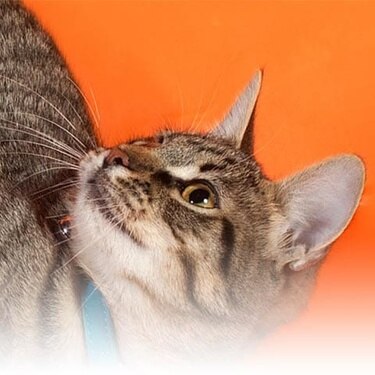
As a responsible pet owner you owe it to yourself and your cat to understand problems associated with overweight cats.
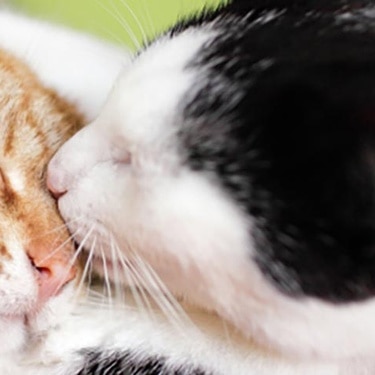
Being overweight puts a cat at risk for developing many serious health issues. Weight gain indicates an increase in body fat and usually results when your cat eats too much and exercises too little.

Put your cat on a diet without them knowing
Our low calorie formula helps you control your cat's weight. It's packed with high-quality protein for building lean muscles, and made with purposeful ingredients for a flavorful, nutritious meal. Clinically proven antioxidants, Vitamin C+E, help promote a healthy immune system.
Put your cat on a diet without them knowing
Our low calorie formula helps you control your cat's weight. It's packed with high-quality protein for building lean muscles, and made with purposeful ingredients for a flavorful, nutritious meal. Clinically proven antioxidants, Vitamin C+E, help promote a healthy immune system.


